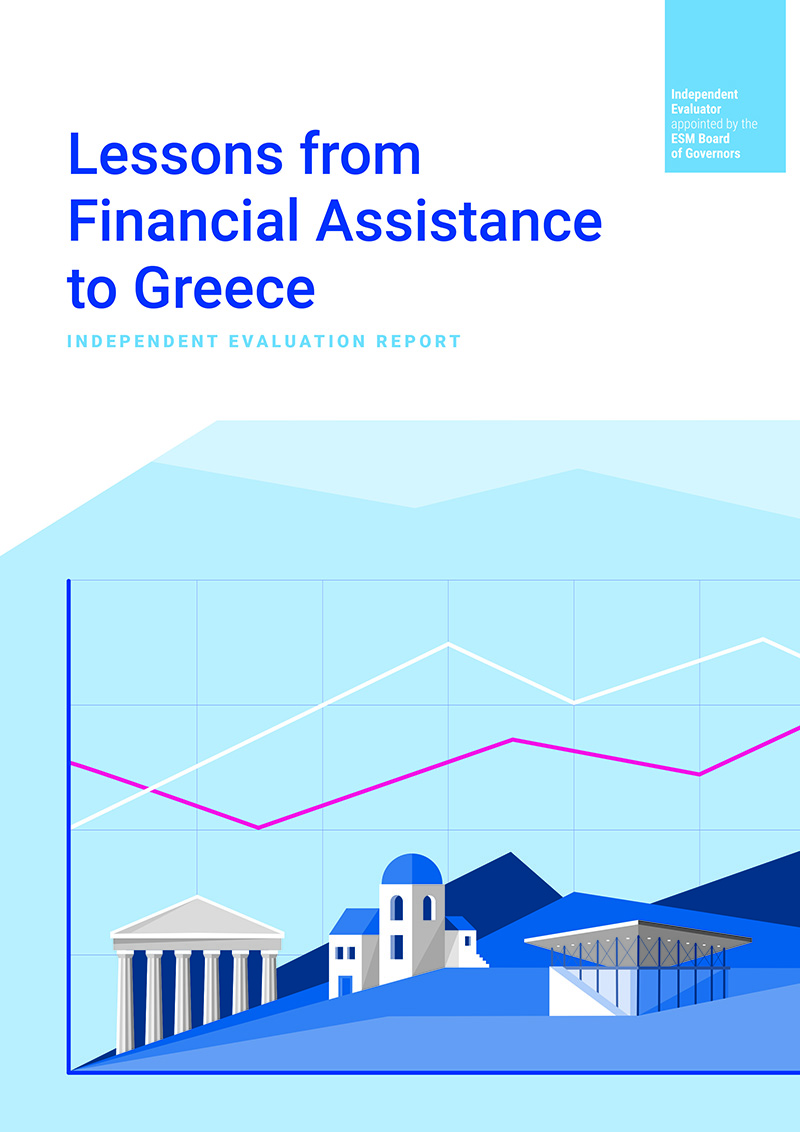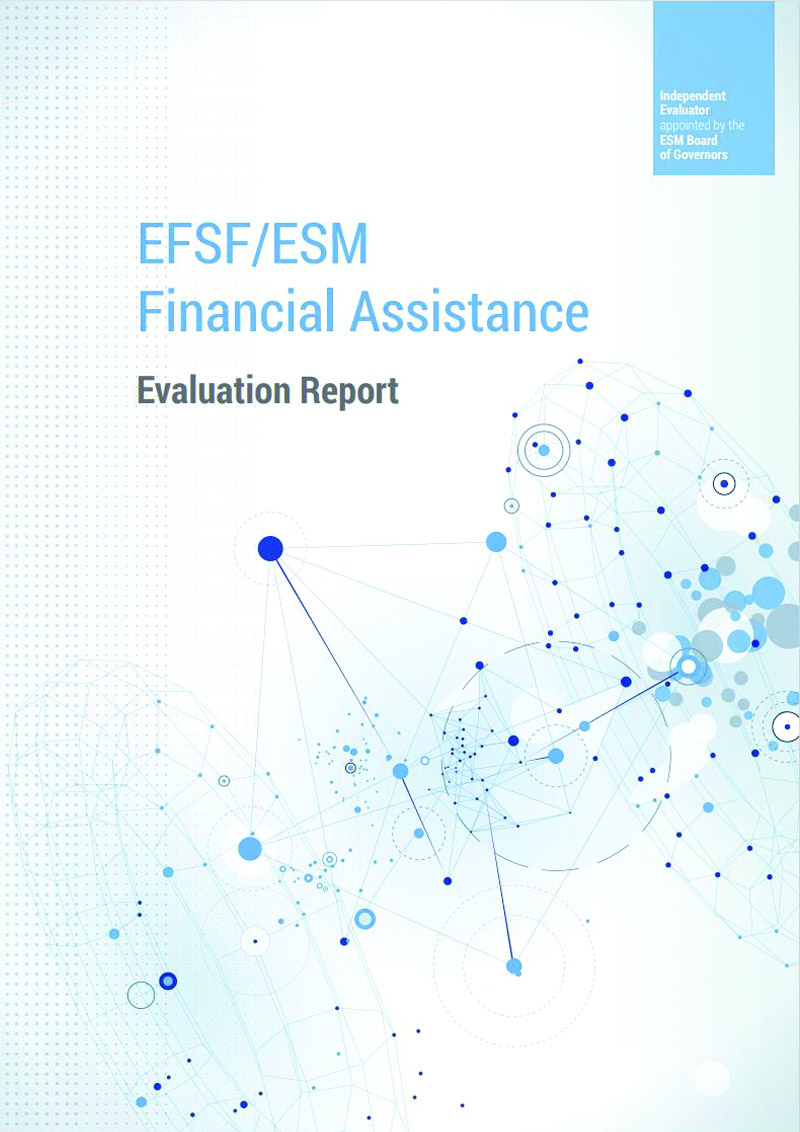Independent evaluation on Greek financial assistance
Evaluation of financial assistance to Greece
This Evaluation Report assesses the financial assistance to Greece in terms of relevance, effectiveness, sustainability, efficiency and cooperation. It primarily focuses on the ESM programme from 2015 to 2018, while taking into account its links with the preceding EFSF programme and the post-programme developments up to end-September 2019.
The Independent Evaluator Joaquín Almunia presented the report at the Annual Meeting of the ESM Board of Governors on 11 June 2020. The Governors assessed the report’s findings and recommendations and will decide how they can be appropriately followed up to improve future programmes.
This second evaluation follows the cross-country evaluation report on the EFSF and ESM’s financial assistance published in 2017. This first report focused on all five euro area countries that received stability support: Ireland, Portugal, Spain, Cyprus, and the EFSF Greek programme up to its initial expiry in December 2014.
Download the Report:
Download the Technical Appendix:
Print on demand (Publications Office of the European Union):
Evaluation Report on past programmes
The Evaluation Report from 2017 evaluates the relevance, effectiveness, and efficiency of EFSF and ESM financial assistance in safeguarding the financial stability of the euro area and its members. It primarily focuses on aspects that were not covered in detail by other evaluations, such as financing and the ESM programme governance framework. It is the first evaluation that covers all five euro area programme countries: Ireland, Portugal, Spain, Cyprus, and the second Greek programme up to its initial expiry in December 2014. These assistance pro- grammes, totalling almost €300 billion, are among the largest in modern history. The evaluation does not assess the political aspects of the Eurogroup negotiations or individual programme policies that were the specific responsibility of other institutions.
Download the Report:
Download the Technical Appendices:
Print on demand (Publications Office of the European Union):
- Discussion Papers
- Discussion Papers
- Discussion Papers
- Discussion Papers
- Discussion Papers
- Working papers











